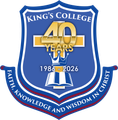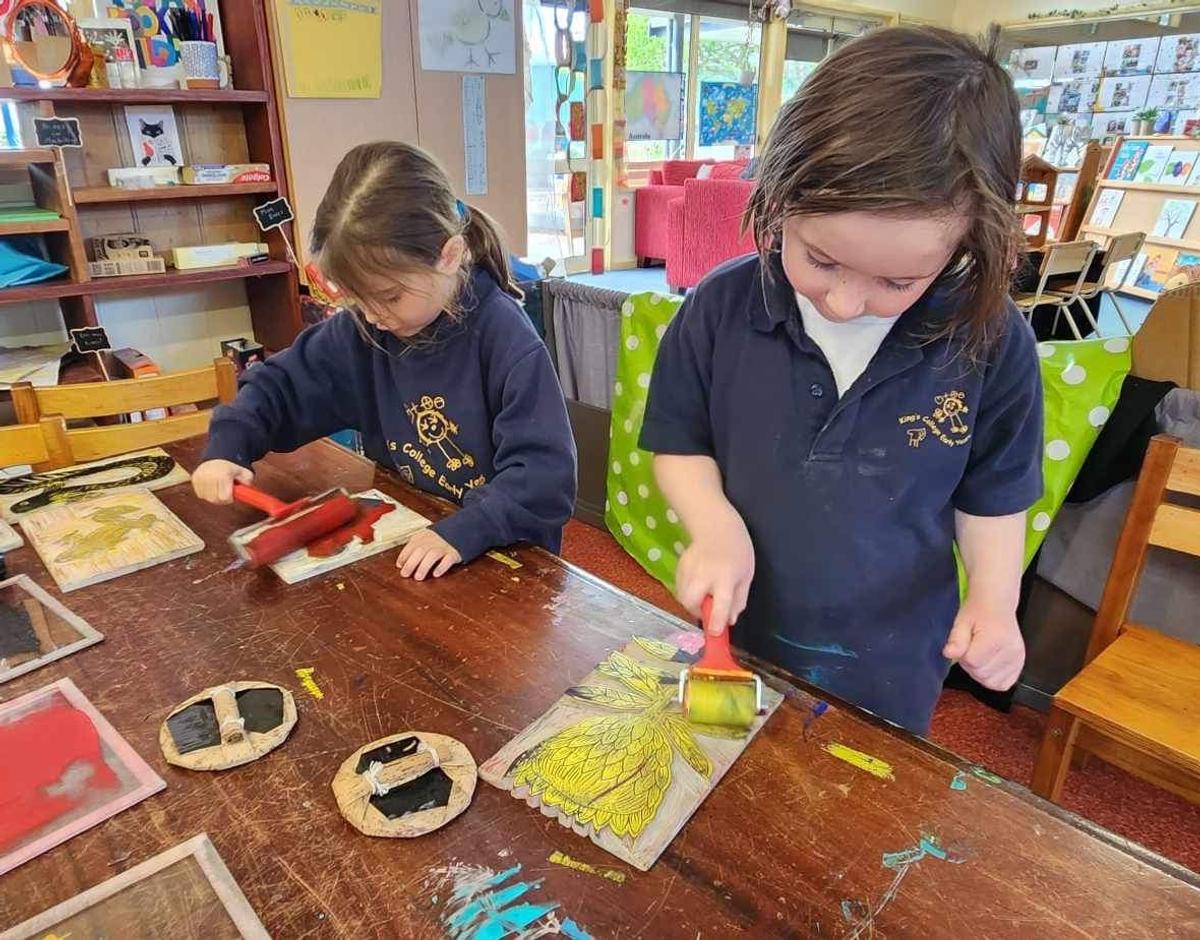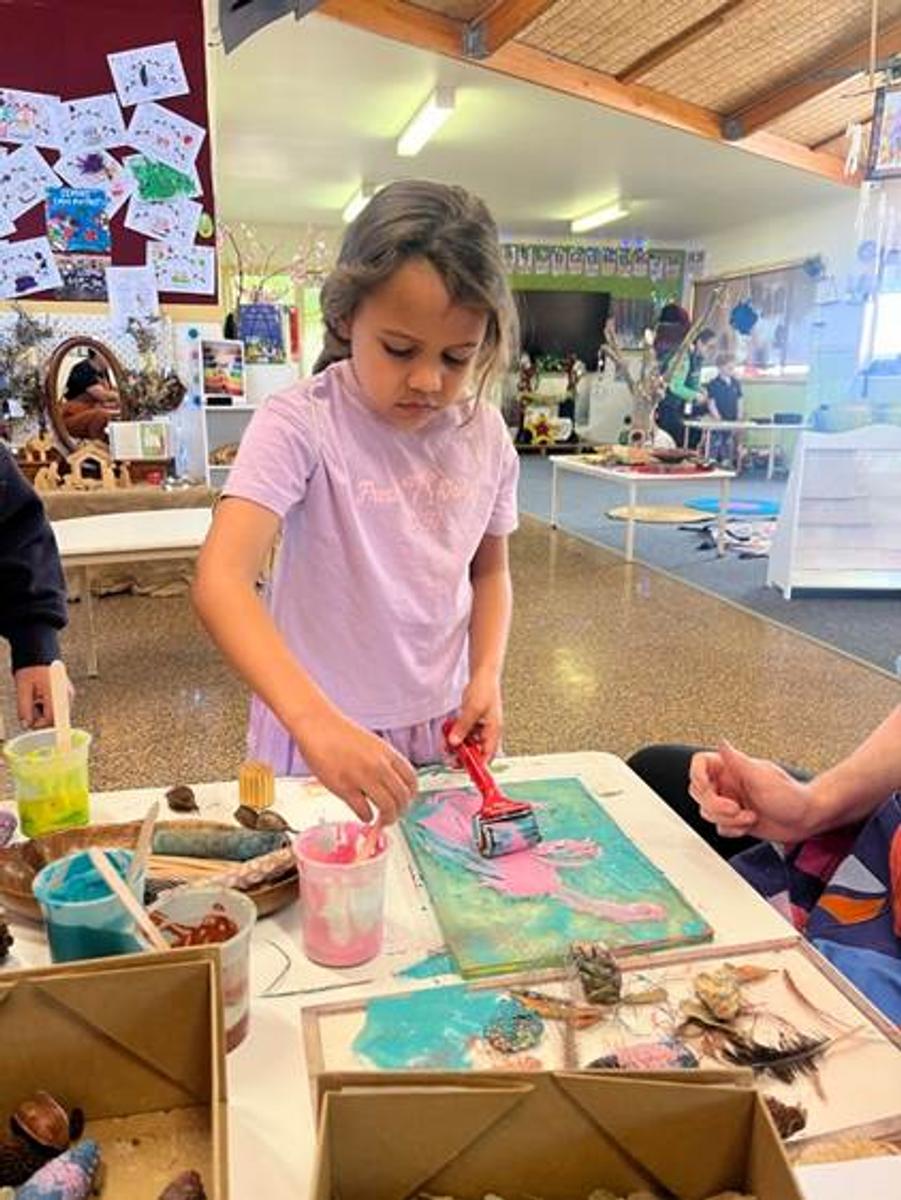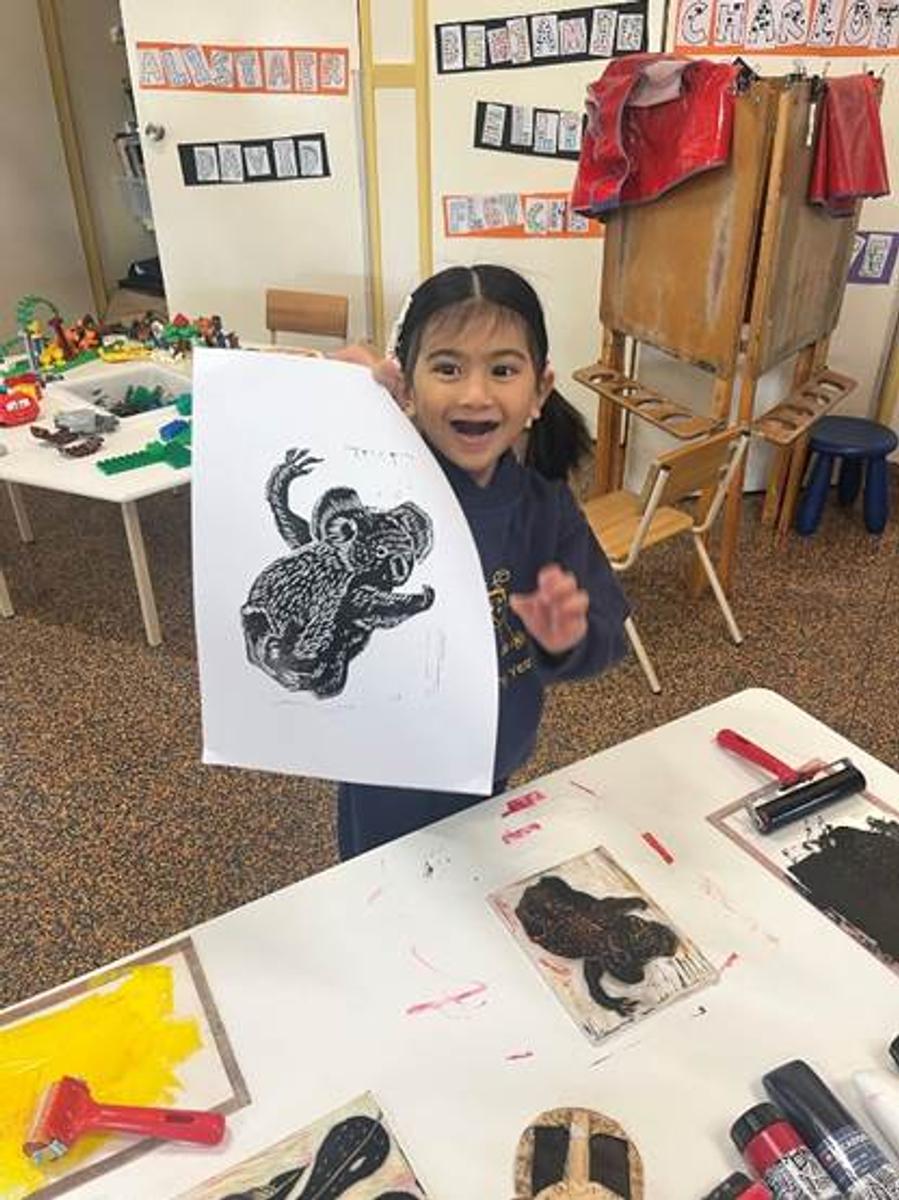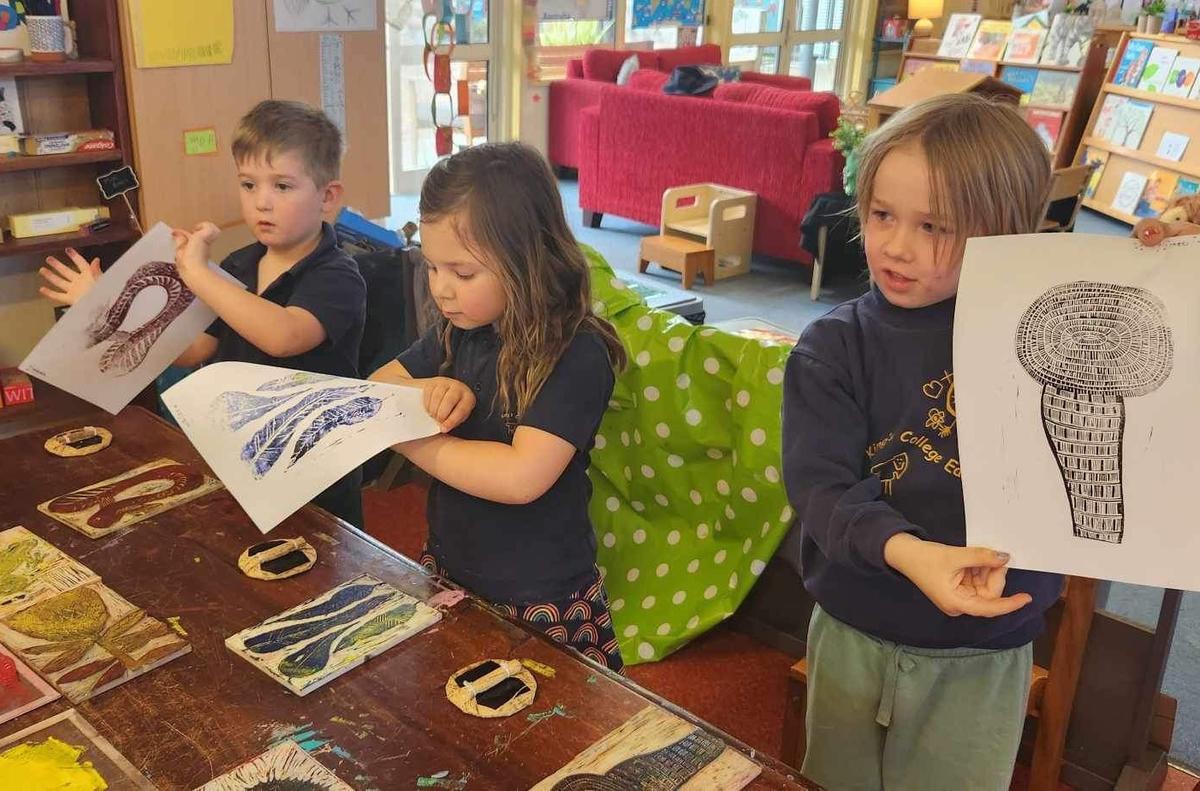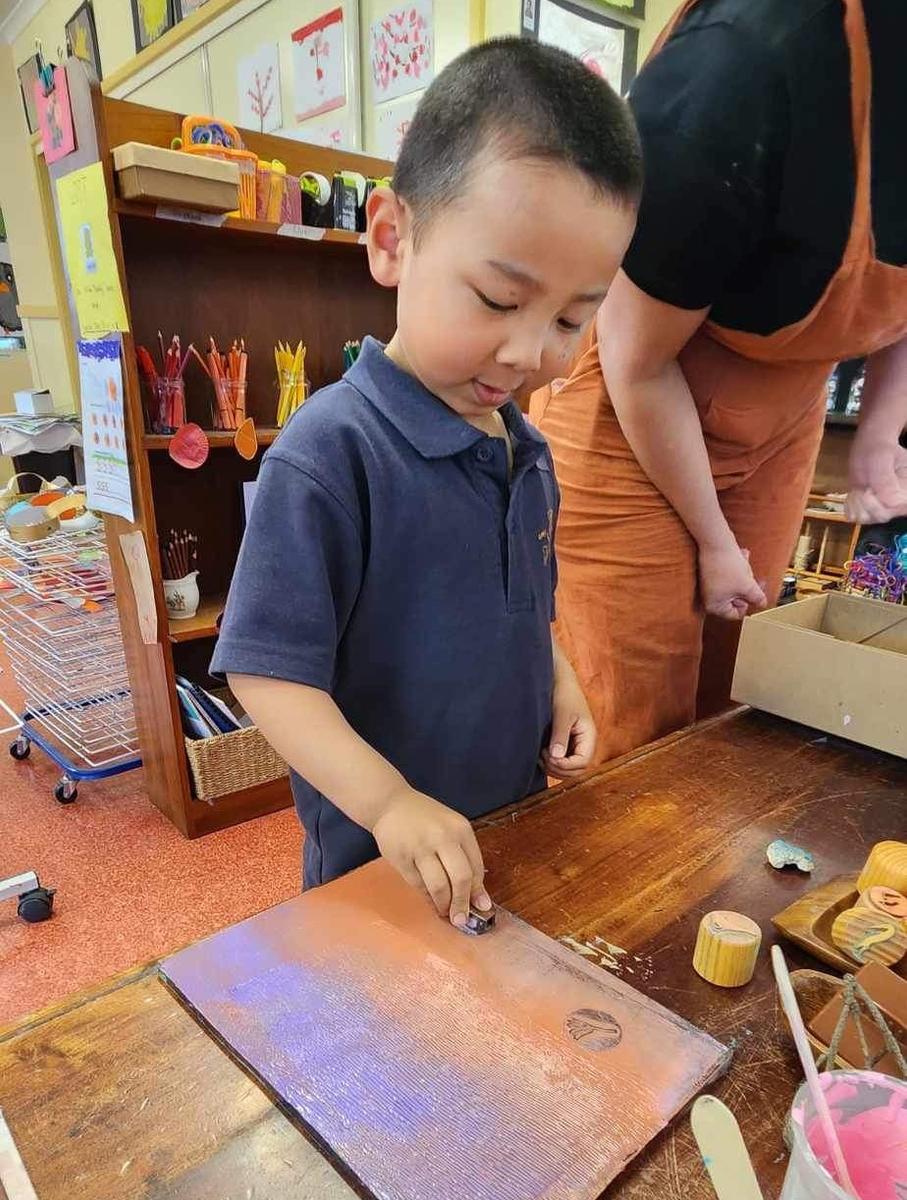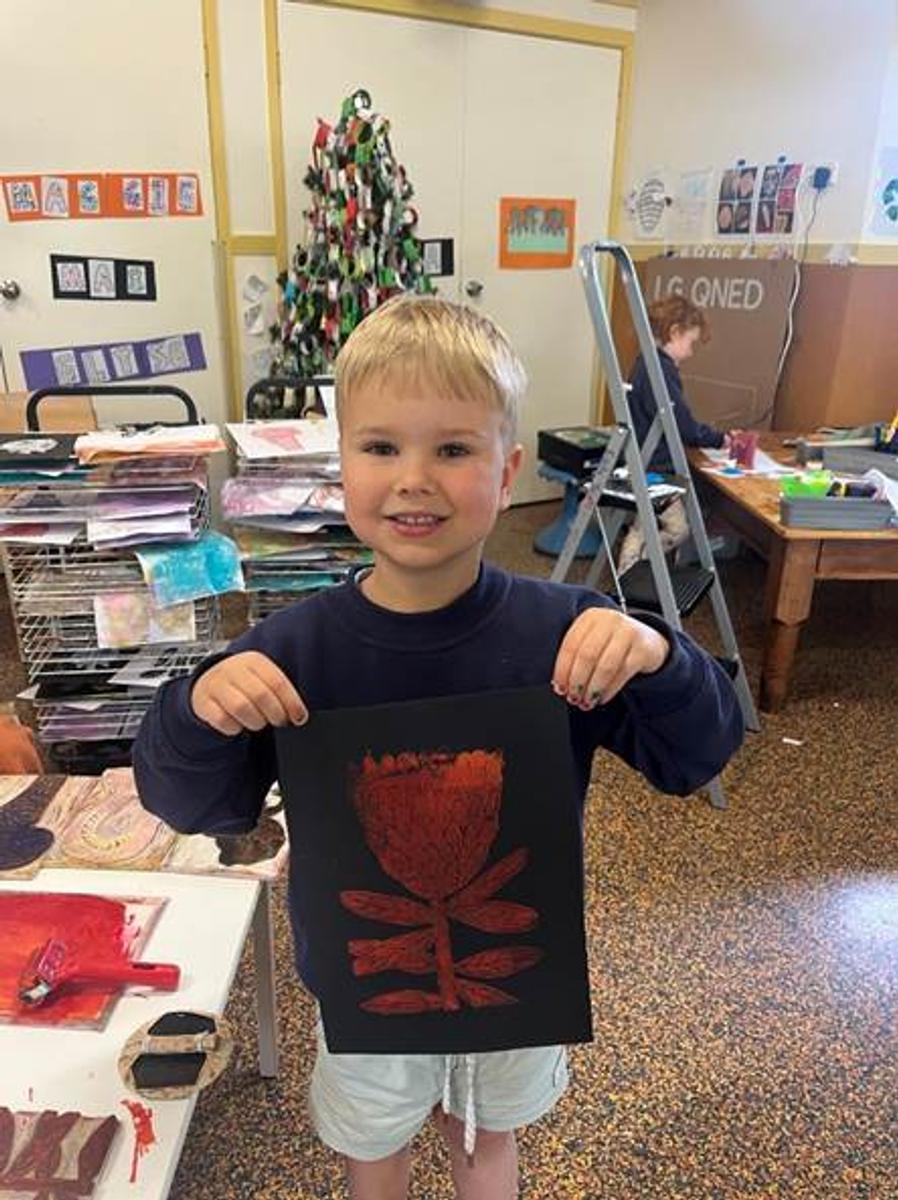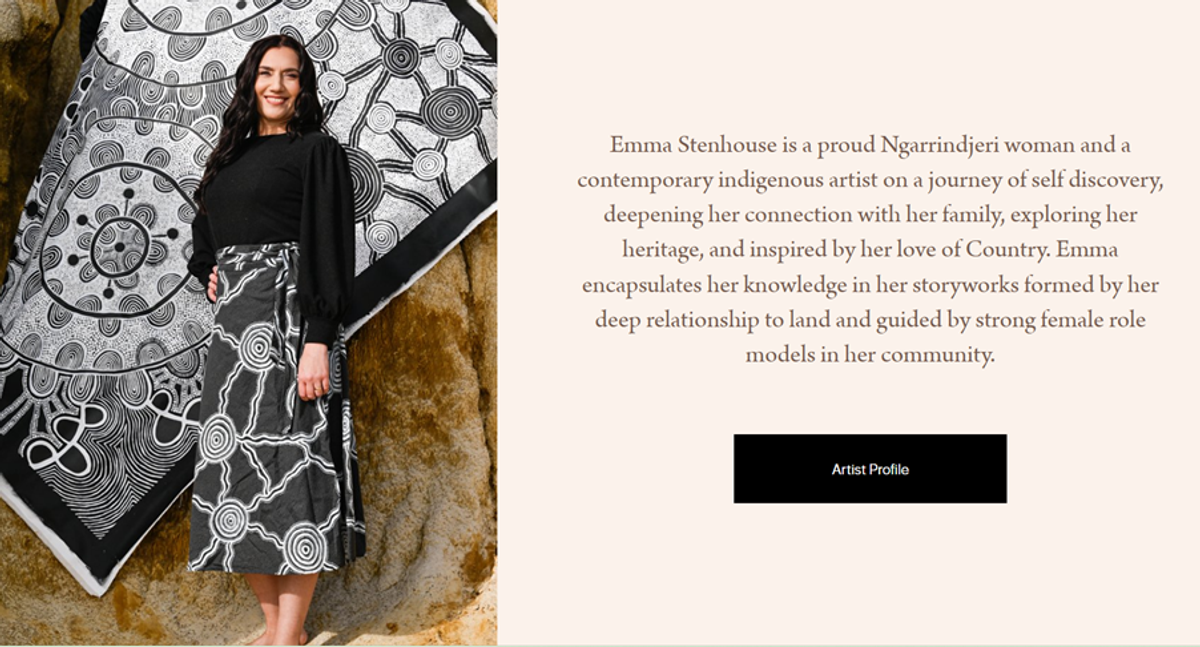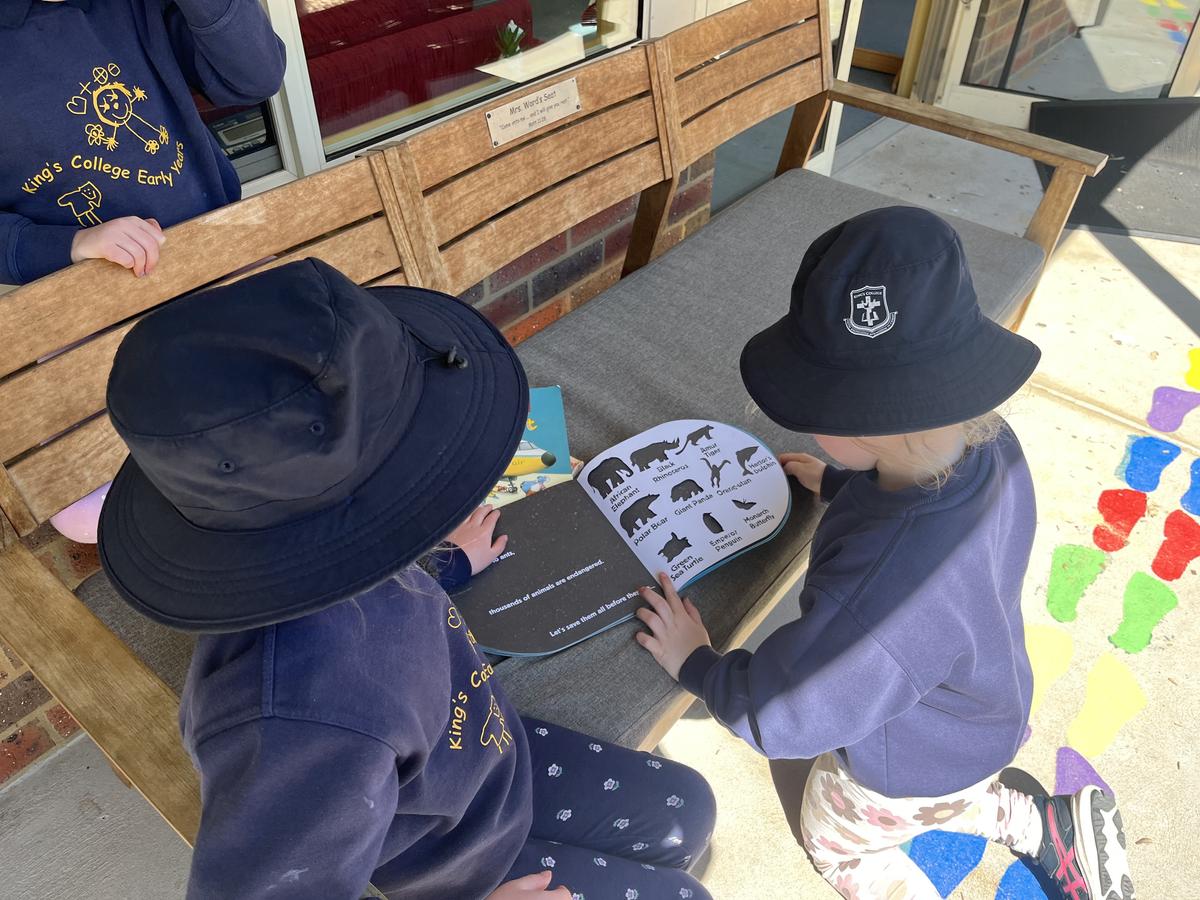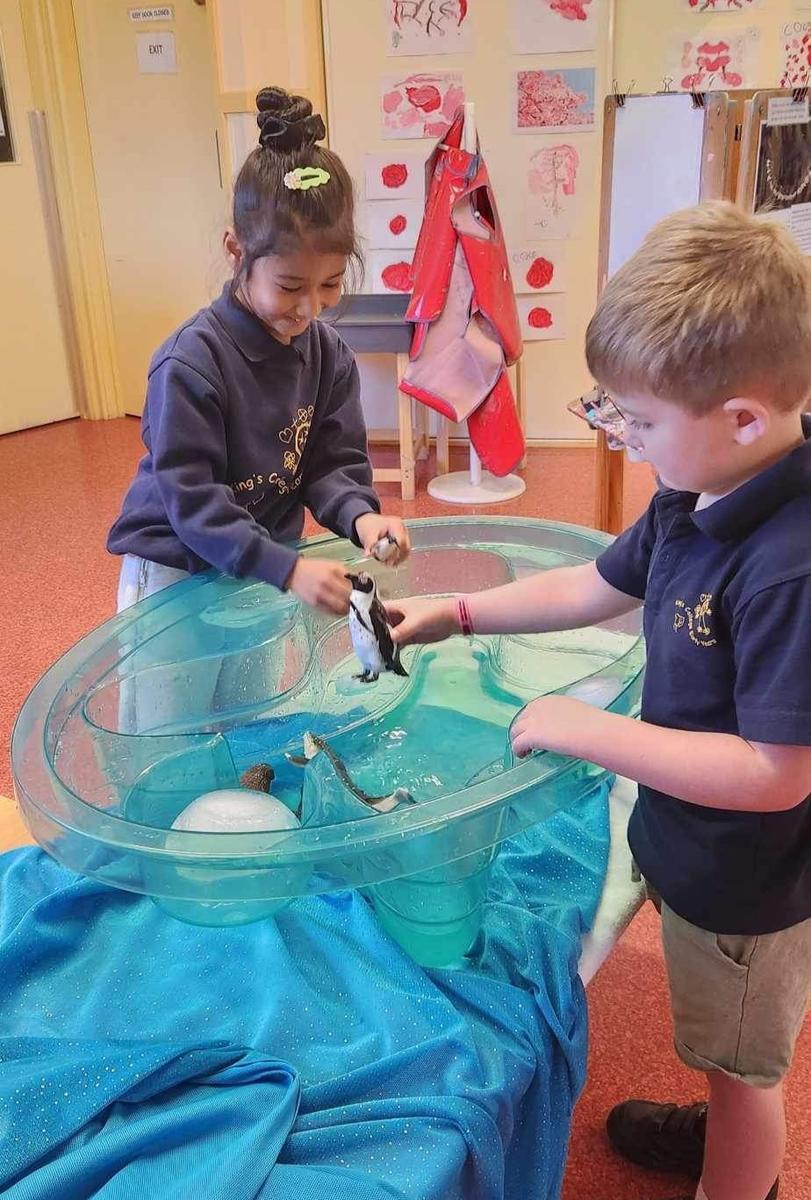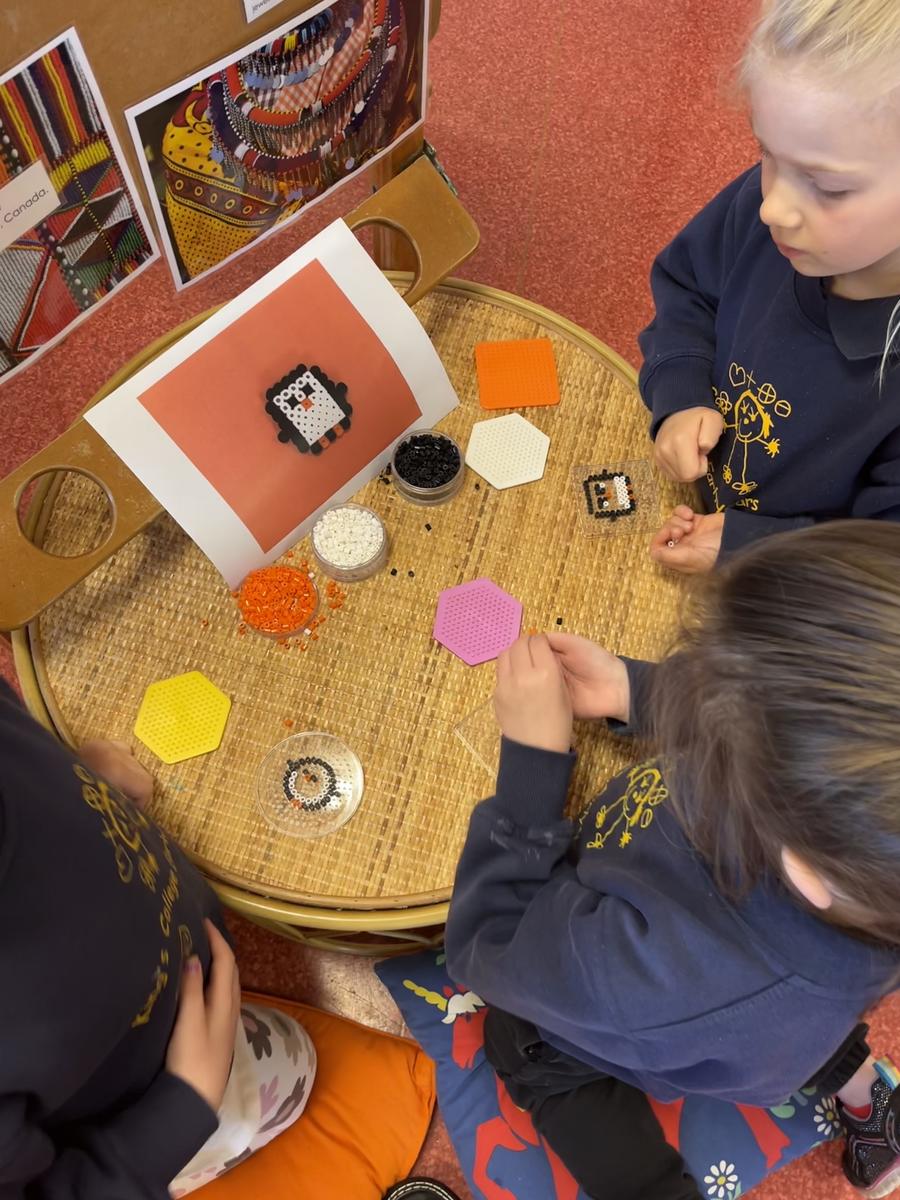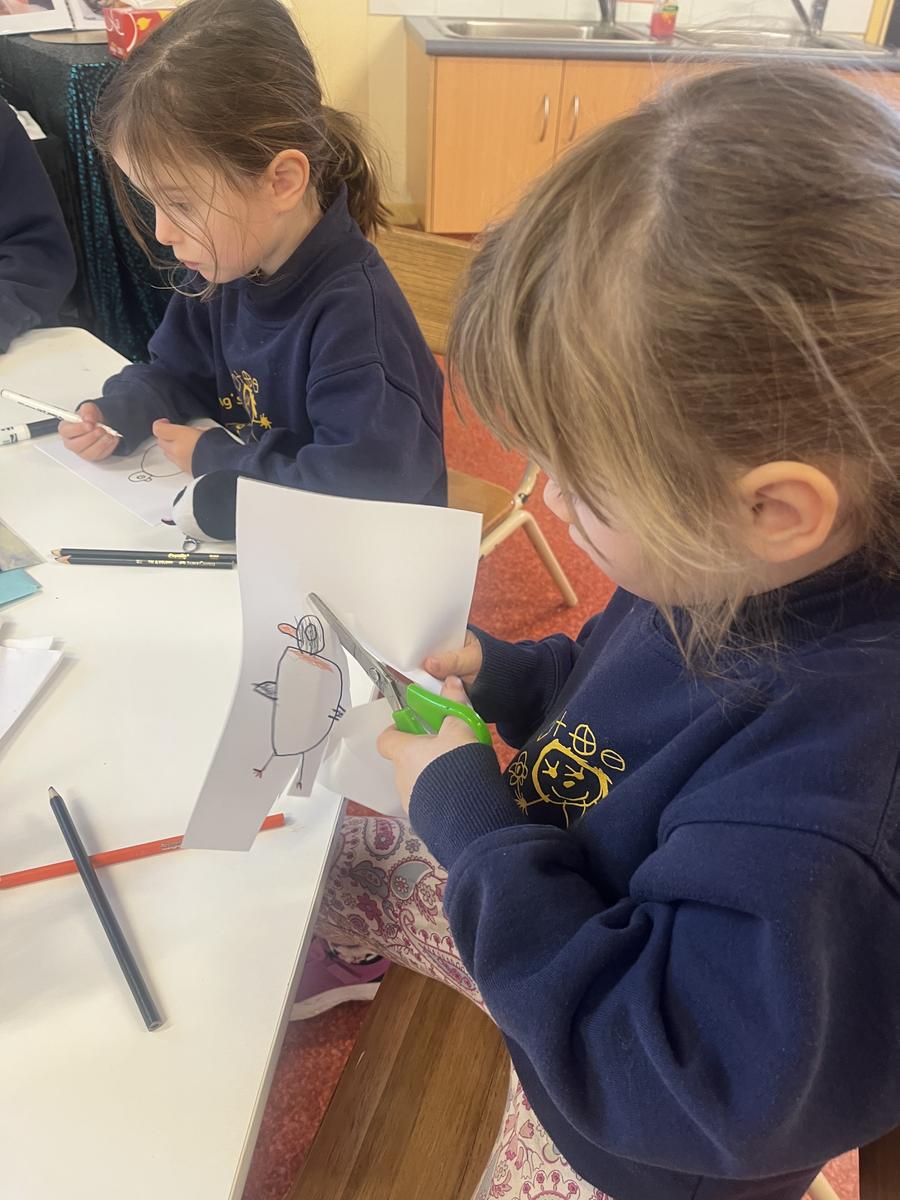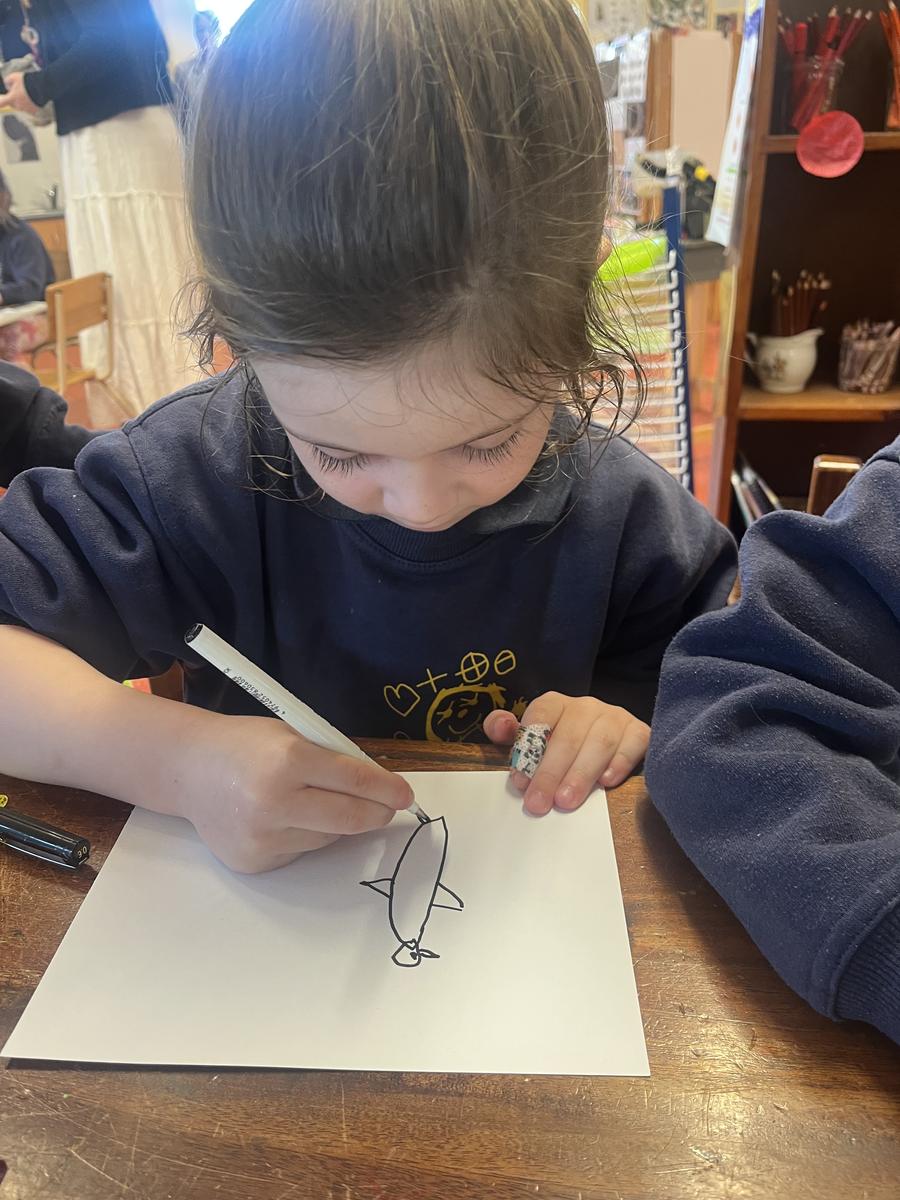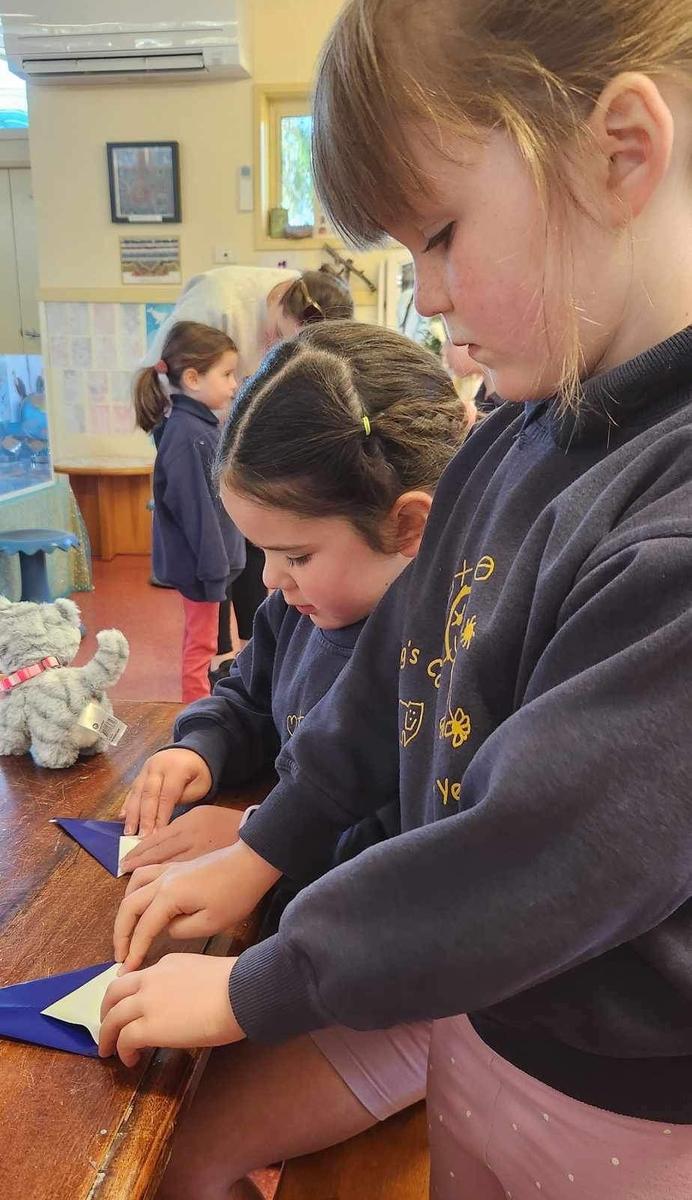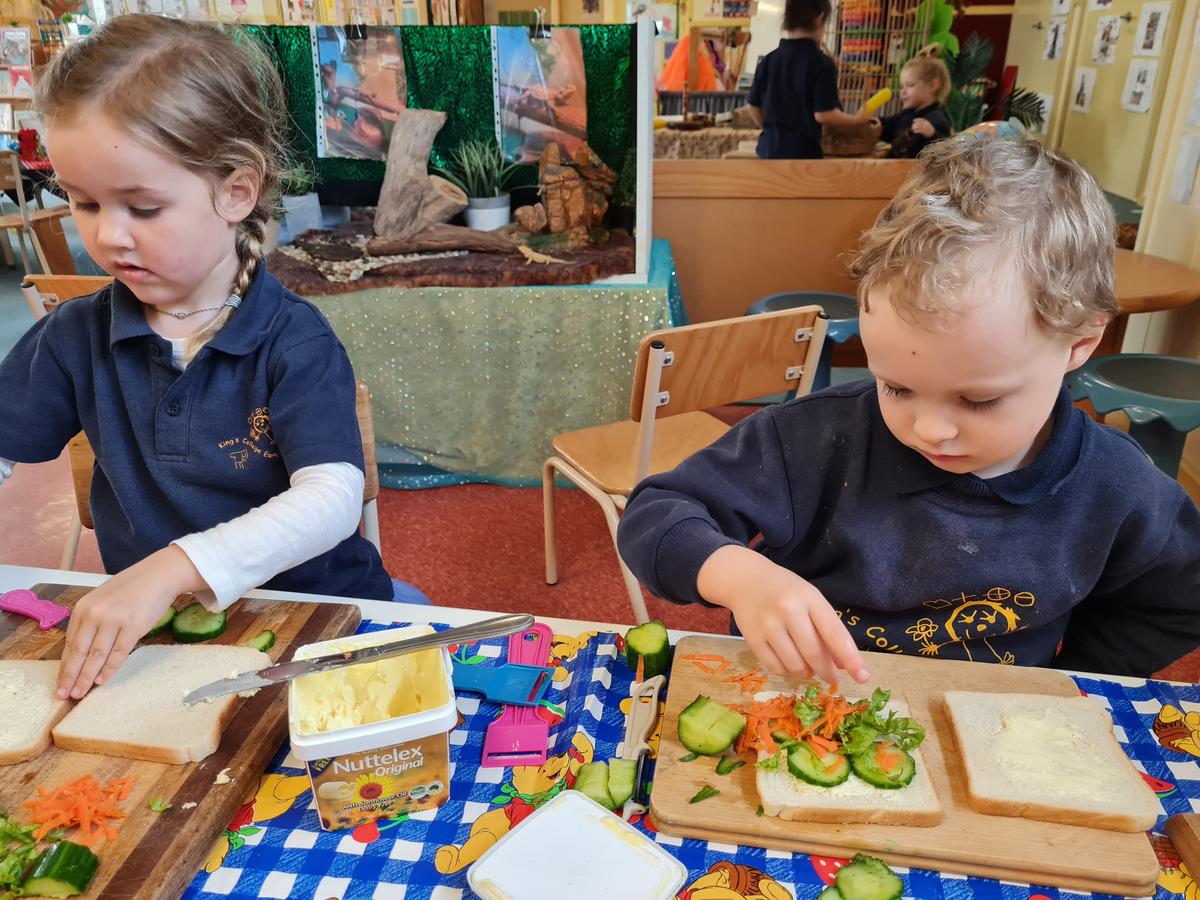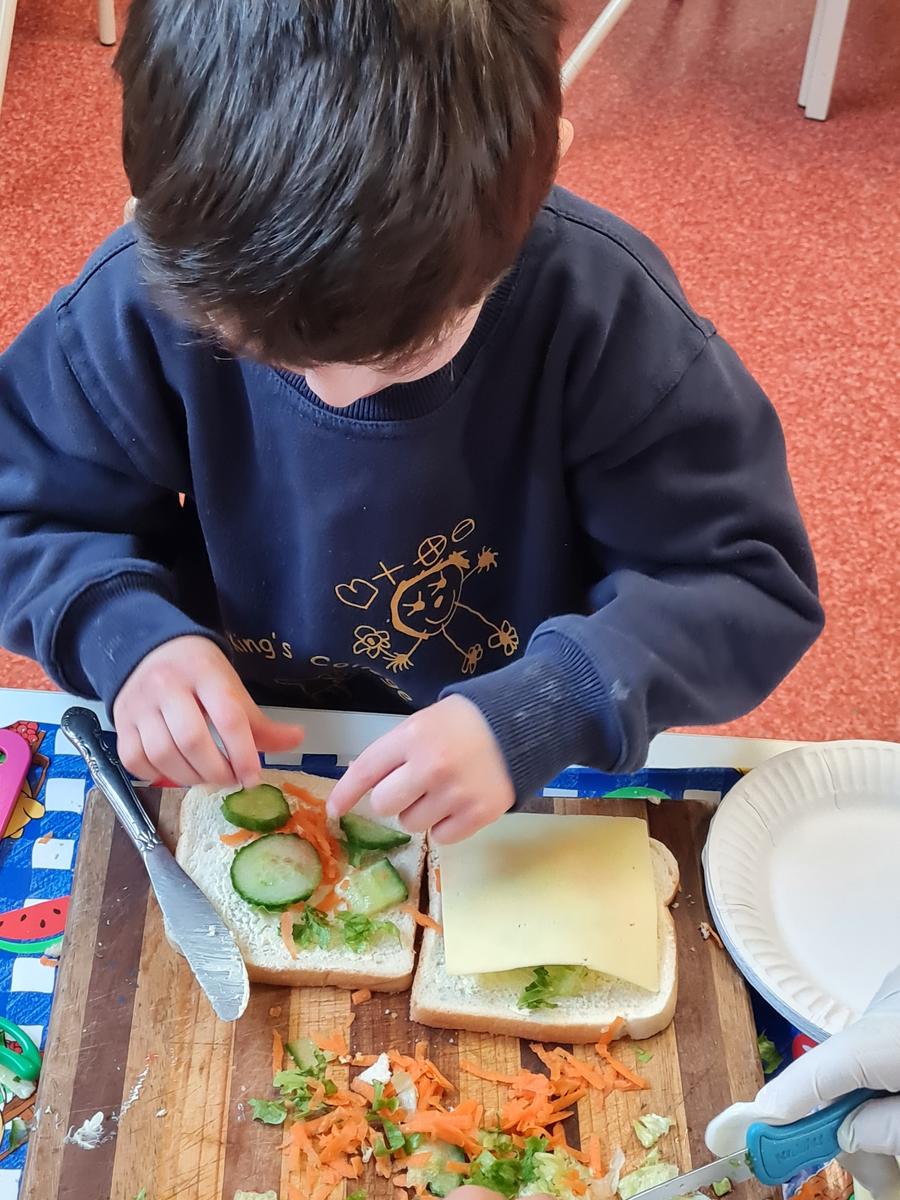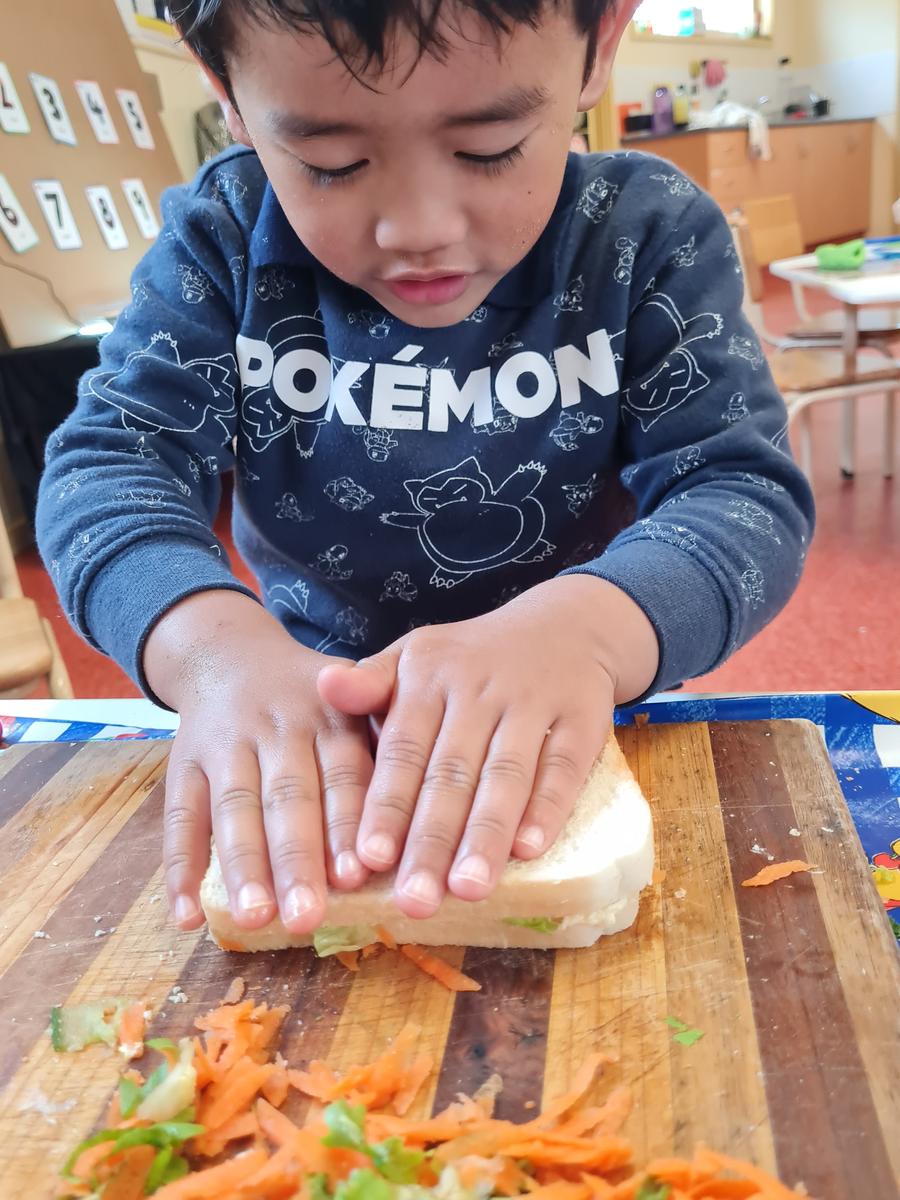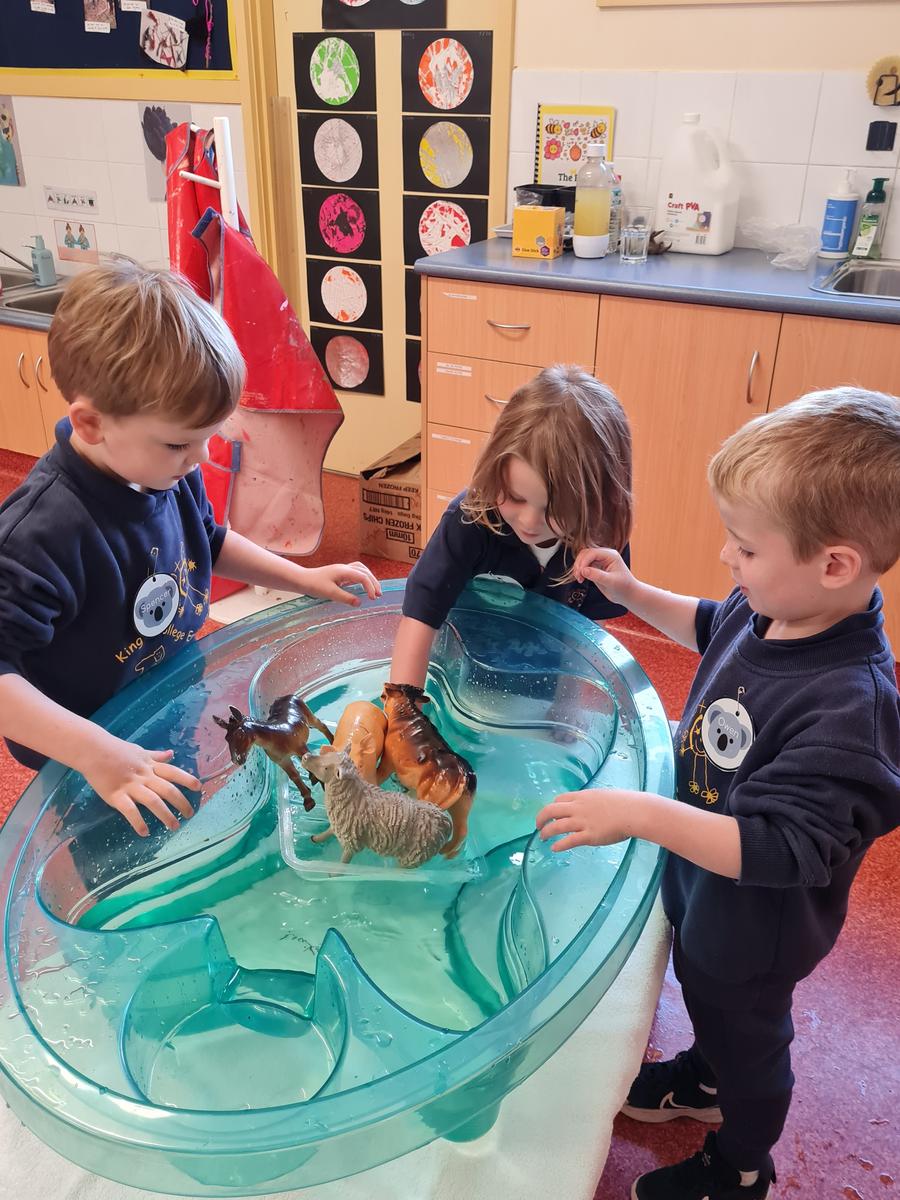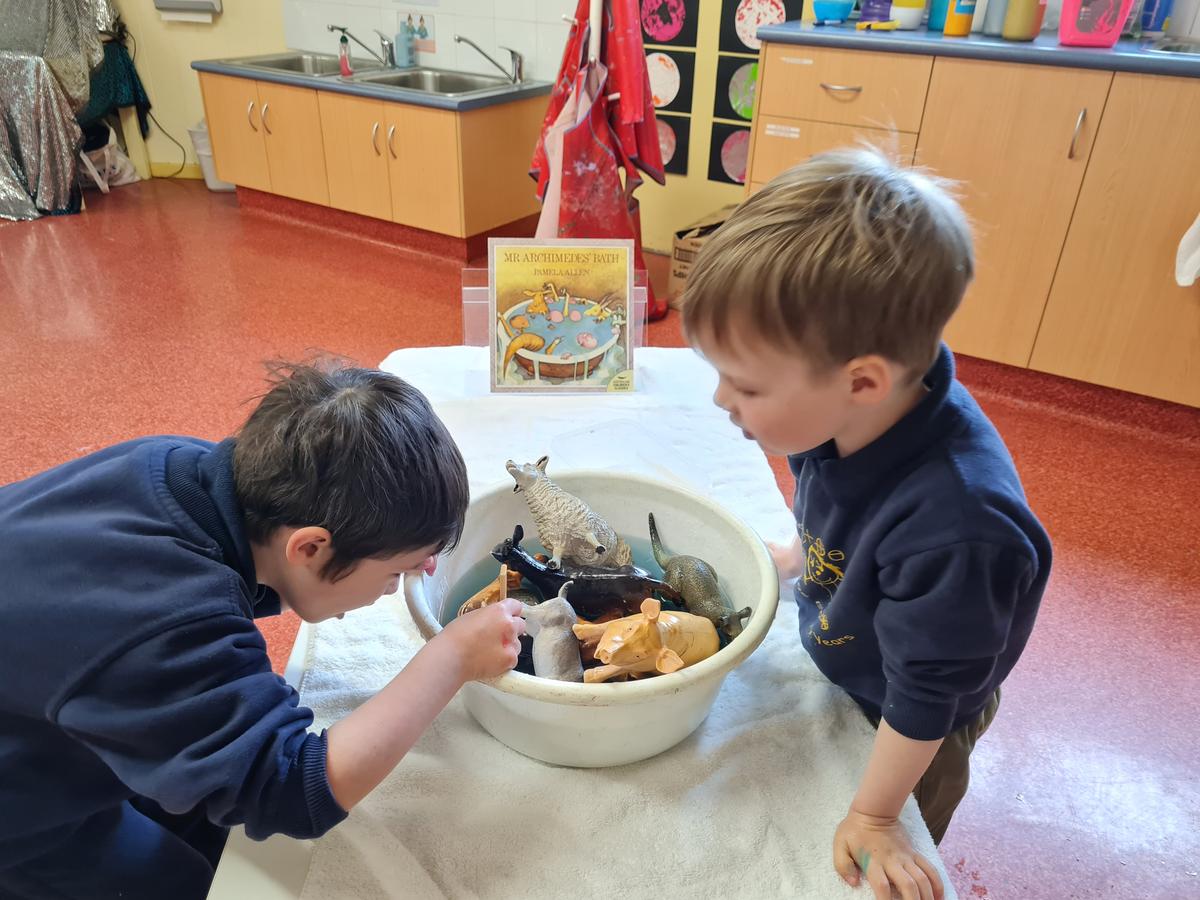Early Learning
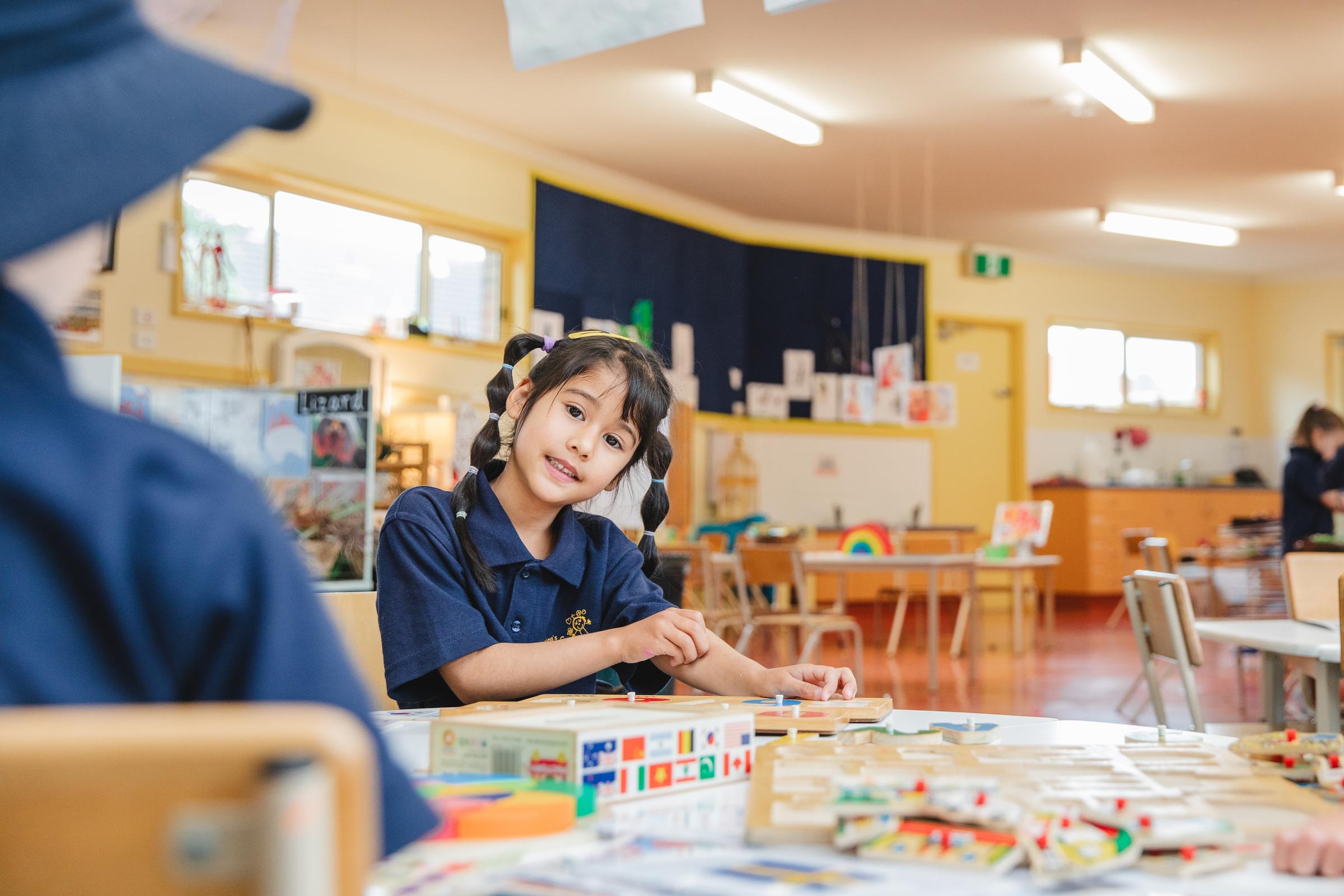
Emma Stenhouse Art Experience
Last Wednesday, the Possum and Echidna groups had the amazing opportunity to participate in a hands on jelly plate painting and lino print making experience, facilitated by Emma Stenhouse.
Emma is a local Indigenous artist whose early childhood teaching experience was reflected in the beautiful way she engaged the children in the sensory creative experience. The children were fascinated by the process of the lino printing and were introduced to new and exciting ways to create art using plants, flowers and seeds from our environment.
Emma worked tirelessly all day to ensure that all children were offered the chance to replicate nature in mediums that were new to them. As they peeled the paper back from the printing plates, the children’s faces lit up like the star over the stable all those years ago in Bethlehem (which is also featuring in our planning this term!). The delight they showed in their achievements makes for the joy that fills us all everyday in the Kindergarten – good times!
The educators also enjoyed the experience and Emma very kindly and patiently allowed us to make a painting and a print. Interestingly, the children had the process down pat way before some of us educators had the process worked out!
It is very exciting for our Kindergarten to be able to offer such creative and cultural experiences for the children. These experiences reinforce our commitment to embed Aboriginal culture into our curriculum, to ensure that we all grow in our knowledge and respect of the local Aboriginal people. The children are taught not only how to use the natural resources around us, but also to understand the importance of the heritage of the First Nations Peoples.
As the children built connections to place through this special art experience, they also were connecting with God’s creation and are learning to appreciate the beauty and significance of the world around them.
The heavens declare the glory of God; the skies proclaim the work of his hands.
- Psalm 19:1
Just as God is the ultimate Creator, our children, too, are reflecting His creativity, as they make art that speaks to the wonder and awe of His creation.
Judi Missen
Early Learning Educator
Possums
Earlier this year, the Possum Group engaged with Science Week and the theme of Species Survival - More Than Just Sustainability. The Possum group read a book about endangered animals called Can We Save the Tiger by Martin Jenkins. Their imagination was particularly captured by the plight of Vultures in India. In their own words “they’re giving the Cows medicine and it’s not helping the Vultures. The Vultures clean up the dead animals. The Vultures will die. They might be extinct. Give them different medicine”.
The Possum group’s compassion led to action. Maya and Novah started writing a letter, and others came to contribute with words and pictures. Nearly everyone chose to sign the letter, which is quite a big thing when you have only just learned, or are still learning how to write your name. When it came to sending our letter, we learned about our Australian government, and how in our democracy we vote in leaders who can help with global issues, by problem-solving with other world leaders. We talked about how other countries help us with our problems too, and that thankfully since the book was written, a lot has already been done to protect Vultures. We sent our letter to the Minister for Foreign Affairs and the Minister for the Environment and Water.
Then, we found another book about Endangered Animals, which suggested other ways we can help. In children's own words:
- Leave animals where they live
- Give them food in winter like seeds for Birds
- Visit a Zoo
- Put rubbish in the bin
- Recycle things
- Adopt an animal - get some money and it goes to people who will look after the animals
The Possum group have enjoyed the voting process over several situations this year, and this time we looked at the animals available to adopt through WWF. The children voted to adopt a Penguin. There was some confusion about whether a Penguin would actually be coming to our Kinder, and we thought about whether a Penguin would be happy here. The children decided it would probably like to live somewhere even colder than Warrnambool, and with its family. Children also thought about ways to raise money. Earlier in the year we had made a book together about bugs. All of the teachers said if the Possum group made a book about Penguins they would definitely buy one, and probably some of the parents would too! The Possum group decided this would be a good way to make some money.
The Possum group worked very hard on creating this book, and voted on Ava’s suggestion - Penguin, Go! as the title. To create the story we explored narrative structure, thinking of characters, setting, problems, and how problems are solved in other stories we are familiar with. We then thought about our own story. The children came up with lots of potential characters, but in the end settled on one main Penguin (named Icy, by Jetson), themselves, and some antagonists who were eating too many fish and throwing rubbish in the ocean. They also thought of lots of problems, most of which made it into the story!
Everyone was able to contribute to the story, with both a picture and an extension of the narrative. The artworks represent different styles that the children chose to include - photography, collage, line drawing, and a box sculpture! It has been amazing to see this group of children encounter such a big issue, and not feel helpless, but empowered to do something to help.
Therefore I tell you, do not worry about your life, what you will eat or drink; or about your body, what you will wear. Is not life more than food, and the body more than clothes? Look at the birds of the air; they do not sow or reap or store away in barns, and yet your heavenly Father feeds them. Are you not much more valuable than they? - Matthew 6:25-26
Beth Parker
Head of Early Learning
Koalas
Our vegetable patch has been flourishing with all the children's watering and we thought it was time to pick some produce. After some discussion we all decided to make salad sandwiches. The children helped to pick lettuce and give it a good wash before we used it. Each child made their own sandwiches, having a go at buttering their bread and using our safety knives to slice cheese and cucumbers.
The Koala Group loved preparing their own sandwiches and sharing a picnic together outside under the gumtree. Everyone tried their sandwiches, with many children enjoying theirs to the very last crumb! Perhaps being proud of their emerging independence and being able to choose their sandwich fillings added to the flavour and their appetites?
Later we listened to The Bear's Lunch book by Pamela Allen. The Koalas loved the suspense and taking part to make the scary growling noises in the story. The story inspired some great conversations around feeling unsafe, defending others, and being brave. It also inspired us to enjoy some more books by Pamela Allen; we read Who Sank the Boat? and tried out some weight and balance investigations with scales and water play, using the characters in the story.
"The mouse sank the boat" Nathaniel thought.
"The mouse is too small. It was the cow... she's bigger" suggested Willow.
"It was all of them" Bobby said.
Another Pamela Allen favourite was Mr. Archimedes' Bath, and again, the children used water play to investigate the concepts in the story.
"The water goes above the line on the measuring stick!" observed Michael after he had added every book character - and lots of rocks - to the bathtub.
"The water is rising! The piggy did it" Daniel observed after he added the large pig to the already full tub.
"The bath is overflowing!" Ella exclaimed.
"Everybody out - the water will go down!" Daniel knew how to solve the problem.
Through their play, the children are able to demonstrate problem solving, conceptualise learning, can hypothesise, and use new terminology to describe what is happening and what they understand.
Sian Duggan
Early Learning Educator
